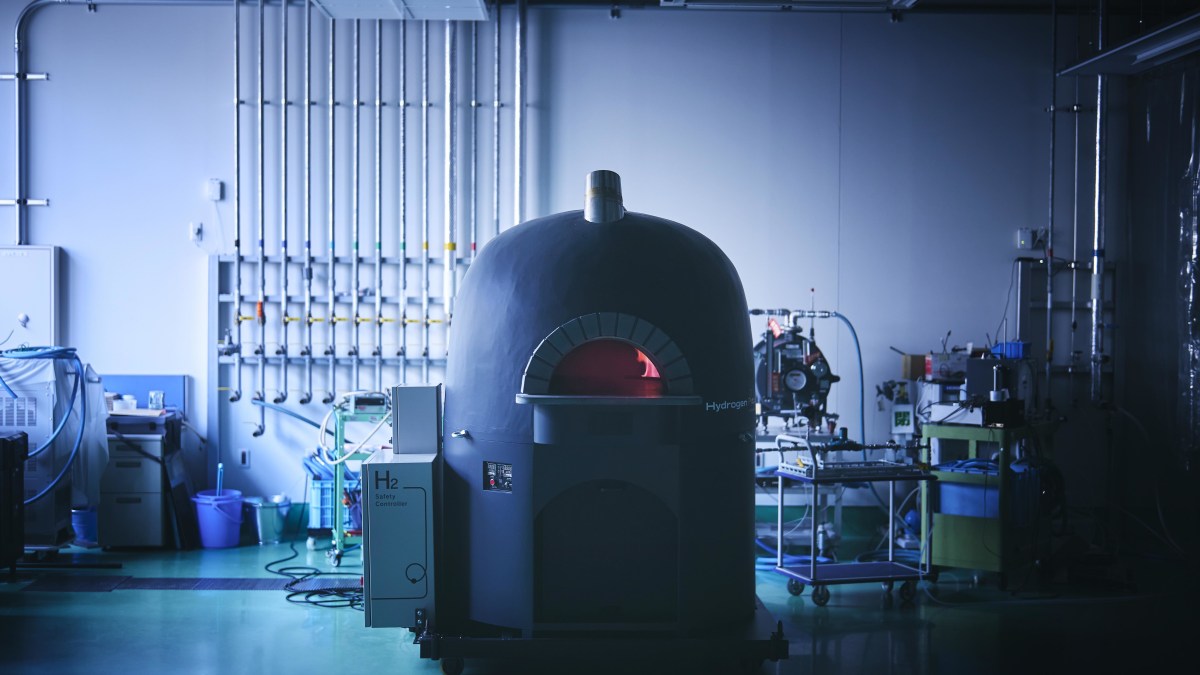I wish I got to do fun little projects like this at my job. Anyway, this proof of concept shows that hydrogen would be a great alternative to propane and natural gas for cooking. Hat tip to @hypx@mastodon.social.

Sooo just cooking gas with more steps.
Oil industry loves pushing hydrogen but it’s nearly all made from fossil fuels, so what benefit is there?
Blue hydrogen is made by stripping the hydrogen from fossil fuel hydrocarbons (chains of hydrogen and carbon, hence the name), and sequestering the carbon. It produces a fuel that contains enough chemical energy to be burned as fuel, but without the carbon atoms that would turn into greenhouse gases.
Most hydrogen currently produced though, is gray hydrogen (made from natural gas, but without sequestering the carbon, so that CO2 is emitted into the atmosphere).
Key words being “current supply”. There are major moves being made to change this. Supply and demand need to grow at the same time if this is to work though.
The biggest use-case I see for hydrogen is more of an energy storage and transfer mechanism. With the world switching to renewables that generate power inconsistently, some countries are looking at putting the extra power into hydrogen generation via electrolysis, which can then be used at night/low-wind days to keep the power grid stable.
If we ever get to the point that we’ve got a surplus of renewably generated hydrogen, then it could make sense to start using to power cars, heating, cooking, whatever.
Fun project! But replacing gas with hydrogen seems really tricky. Hydrogen is much harder to transport without leaks because it’s such a tiny molecule. Electric seems better than trying to still burn hydrogen.
The best way to store and transport hydrogen is to combine it with carbon so that it becomes a convenient liquid fuel. As a bonus, then you don’t even need fuel cells to make electricity from it, but can instead simply burn it in something called an “internal combustion engine”
This is just synthetic fossil fuel with extra steps. Lol.
Exactly.
Hydrogen is mostly a greenwashing scam; it isn’t any better than what we already have.
Back in the early days of gas infrastructure, before wide-spread electrification, you know gas street lights and everything, the gas was produced by gasifying coal, resulting in gas that was often over 50% hydrogen, with only ~20% methane. Rest nitrogen and CO.
Natural gas has a methane content upwards of 75%, which meant that everyone had to switch out their burner nozzles but the rest of the infrastructure stayed intact.
All this is to say: Nothing about is really new or rocket science. Europe is certainly creating a backbone pipeline network for hydrogen, parts of it new pipes, other parts re-purposed natural gas pipes, many were built to a standard that allows them to carry hydrogen though some valves etc. might need upgrading. Some of those were originally built for hydrogen in the first place, and checking Wikipedia there’s actually a 240km segment in the Ruhr area, built in 1938, still in operation, which always carried hydrogen. Plain steel but comparatively low-pressure so it works.
Oh and have another number: According to Fraunhofer, Germany’s pipeline network can store three months of total energy usage (electricity, transportation, everything). Not in storage tanks, but just by operating the pipelines themselves at higher or lower pressure.
And we need that stuff one way or the other: Even if tomorrow ten thousand fusion plants go online that doesn’t mean that the chemical industry doesn’t need feedstock, or that reducing steel with electricity would make sense. Both of those things need hydrogen.
Fusion is still in the future so the plan is to import most of that hydrogen, mostly from Canada and Namibia, in tankers carrying ammonia which is way more efficient that trying to compress hydrogen also ammonia is needed for some processes anyway.



